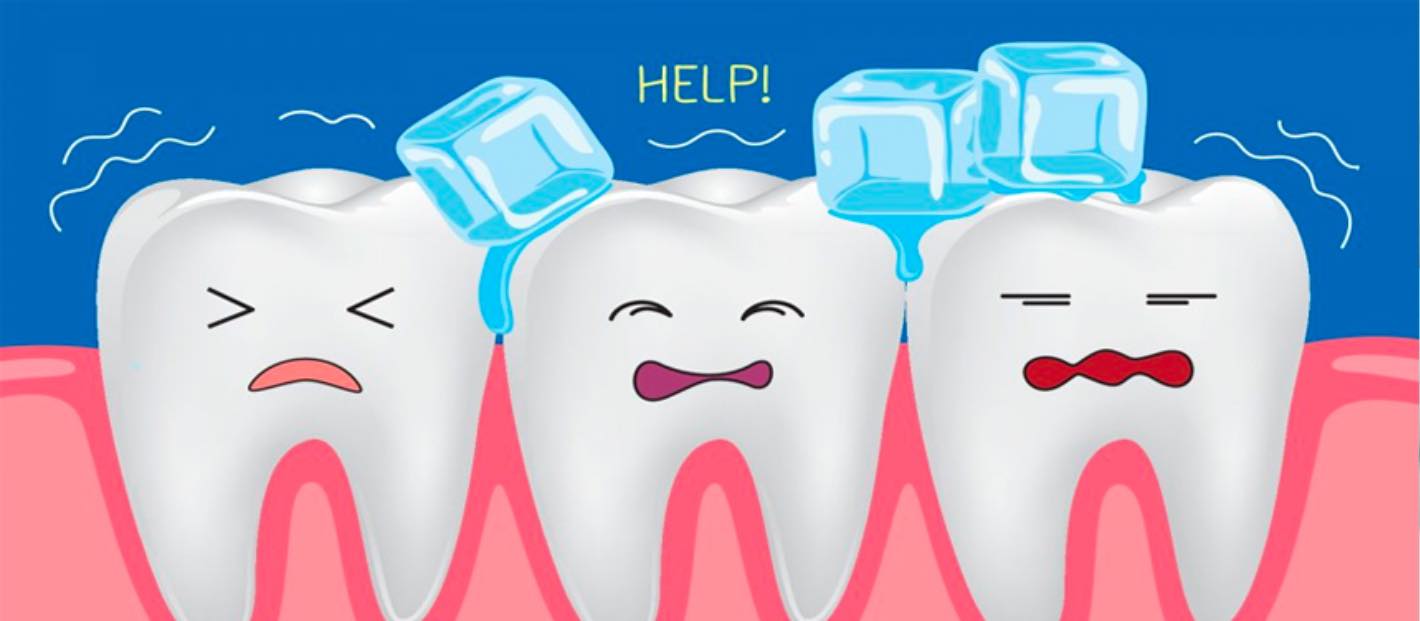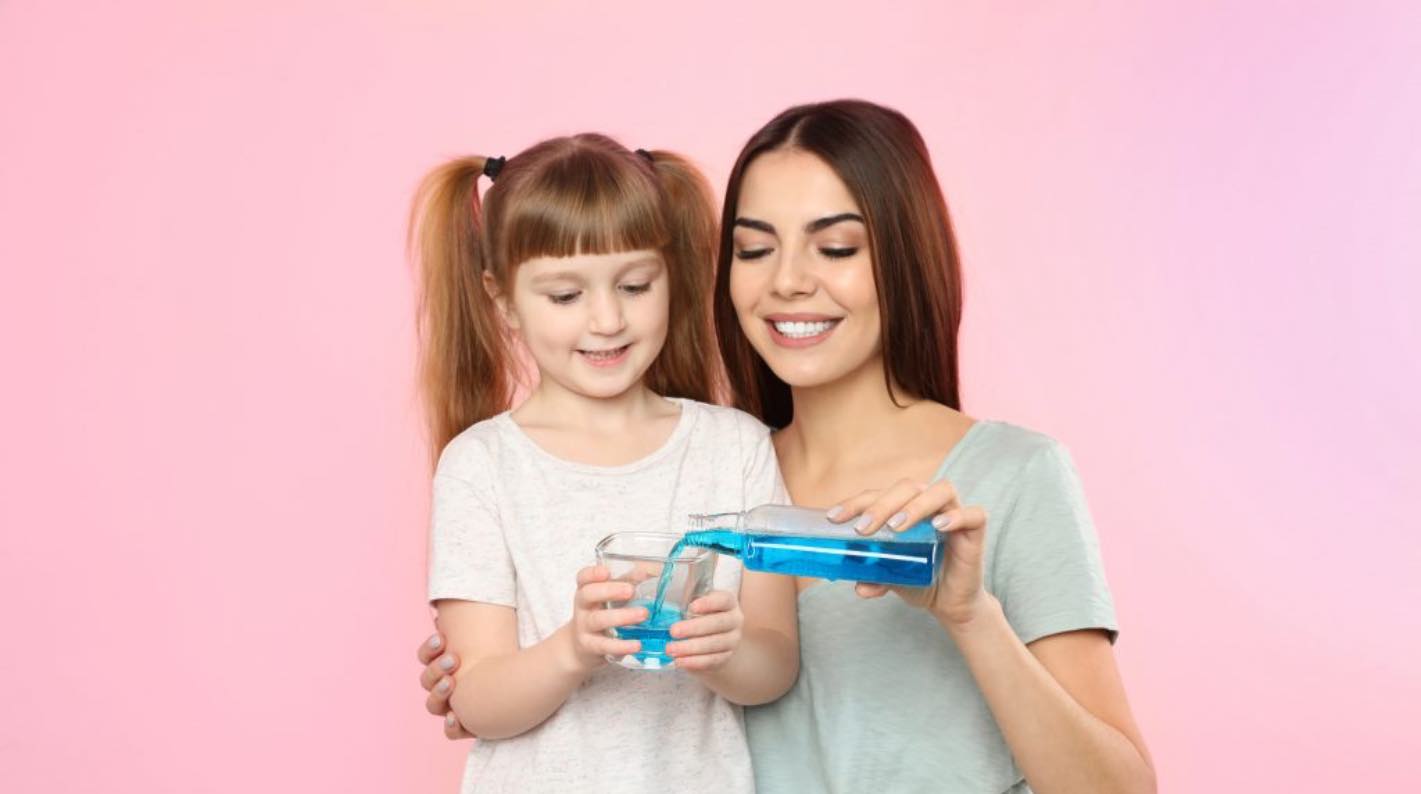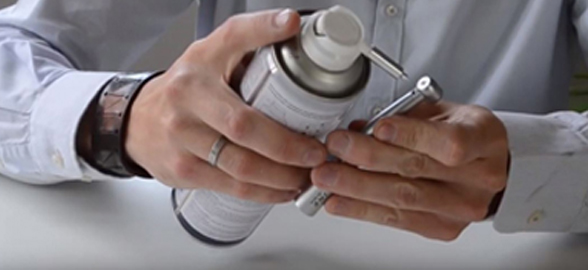Mouthwashes and mouth rinses are essential products to help maintain perfect oral hygiene. Their proper use, together with correct brushing and the use of dental floss, is an effective resource for treating or preventing various diseases. Do you know the different types of mouthwashes and mouth rinses that are available and how to choose the most suitable one? We will answer these and other questions so that you can discover all the benefits of using them. Are you ready to learn all about mouthwashes and mouth rinses? Let's go!

Mouthwash and mouth rinses: everything you need to know
What is a mouthwash and when should it be used?
Mouthwashes are products that contain different active ingredients. They are nothing new! They have been used in many civilisations, including pre-Columbian civilisations. Hippocrates, in Ancient Greece, recommended rinsing the mouth with a mixture of alum, salt and vinegar.
Nowadays they are used as an essential part of oral hygiene, as the diluted ingredients reach places where toothbrush bristles cannot reach, even with a proper brushing technique. You should know that several diseases can be prevented, controlled or treated with these products, as we will see below.
Using a mouthwash or mouth rinse is easy, quick and really worth it! Around 20 millilitres of these undiluted solutions are used for 30 seconds after brushing. They do not need to be rinsed out with water afterwards, as they must remain in the oral cavity to take effect. The use of mouthwashes and mouth rinses never replaces toothbrushing, but reinforces it.
Are mouthwashes and mouth rinses the same thing?
No, they are different products, and the determining factor is the alcohol content. Mouth rinse does not contain alcohol, while mouthwash contains around 20%. A third type of product is elixir, which contains more than 50% alcohol, so it must be diluted with water when used.
How can I choose the best mouthwash?
The best mouthwash or mouth rinse will always be the one that best suits your needs. If it's part of a dental treatment, your dentist will usually guide you in choosing the most appropriate mouthwash or mouth rinse based on its active ingredients. Generally speaking, however, the product should meet the following conditions:
- Have a pleasant taste.
- It must be safe, have no negative effects and be non-toxic.
- Contain effective active ingredients, according to its specific purpose.
- Penetrate dental plaque.
- Possess broad spectrum antimicrobial activity.
- Be chemically stable.
- Not interact with the components of toothpastes.
But is the use of mouthwash or mouth rinse really necessary?
The answer is yes! Of course, they are not only necessary, but essential. These solutions, thanks to their liquid state, are able to reach all tooth and gum surfaces. In this way, they deliver the active ingredients to the places where they need to have an effect. Moreover, if used correctly, without rinsing with water afterwards, they remain in the oral cavity for some time, thus prolonging their action.
What types of mouthwashes and mouth rinses are there and in what situations are they suitable for?
The type of mouthwash will depend on the purpose you want to achieve. When sold as over-the-counter products, some of them are useful for preventing certain diseases. Those marketed as pharmaceutical specialities contain active ingredients with anti-inflammatory, healing, anaesthetic or analgesic effects, and serve as contributories to certain treatments.
What diseases can be prevented by regular use of mouthwash and mouth rinse?
Bacterial proliferation and dental plaque are two of the problems that these solutions can solve thanks to their active ingredients. In this way you prevent two diseases: caries and gingivitis, caused by the appearance of tartar.
Another way to prevent tooth decay is to use mouthwashes and rinses containing fluoride compounds, as they strengthen the enamel. Halitosis is also effectively combated when you use an antibacterial product. Hexetidine accelerates healing and is therefore useful in the case of oral surgery, periodontitis or ulcers. Bothersome dental hypersensitivity can be effectively treated with various types of mouthwashes and mouth rinses.

Active ingredients of mouthwashes and mouth rinses
The active ingredient is the main component of these products. These are substances that have a curative or preventive effect, and for this reason it is important to be aware of them. Some of them should be used with caution:
- Anticaries and remineralising action: sodium fluoride, dibasic calcium phosphate, stannous fluoride, amine fluoride and sodium monofluorophosphate.
- Prevention of periodontitis: triclosan, chlorhexidine, hexetidine, thymol, quaternary ammonium derivatives, sanguinarine and eucalyptol.
- Effect against dental hypersensitivity: aluminium lactate, strontium chlorid and potassium nitrate.
- Halitosis control: triclosan, chlorophyll, chlorhexidine, chlorine dioxide, sodium bicarbonate, zinc chloride, cetylpyridinium chloride, benzethonium chloride and phenolic compounds such as eugenol and thymol.
Is it advisable for children to use mouthwashes?
The main problem observed in childhood is the appearance of tooth decay. The use of mouthwashes and mouth rinses with an antimicrobial effect is a powerful tool to combat this disease. It is advisable to wait until the child is able to control the liquid in the mouth, so that it is not swallowed. On the other hand, the use of these products from an early age creates a healthy oral hygiene habit. Mouthwashes for children are recommended from the age of 6 and it is important that they use mouthwashes specially formulated for them.

Frequently asked questions about mouthwashes and mouth rinses
Is cetylpyridinium chloride (CPC) effective against COVID-19?
Due to the impact of the Sars-Cov-2 pandemic, scientific research has been accelerated to control the spread of the disease. There is now evidence that cetylpyridinium chloride is capable of significantly reducing the virus's ability to transmit. Further research is underway to determine whether mouthwashes containing this active ingredient are able to control human-to-human transmission. Therefore it is true as far as we know!
Does chlorhexidine stain teeth?
This substance has antiseptic action, as it is bactericidal and fungicidal. For these reasons, it is extremely useful in the prevention and treatment of caries, gingivitis and periodontal disease.
However, a chlorhexidine mouthwash can react with the pigments contained in coffee, tea, tobacco or wine, and in these cases produce brown stains on the teeth and gums, an effect that is reversible. The solution is to take extreme hygiene measures to remove plaque (where this reaction occurs) and use a toothpaste with a whitening effect.
In short, the use of mouthwashes is an unavoidable part of oral hygiene. Advances in dentistry have led to the availability of specific products that are highly effective in both the prevention and treatment of a wide range of diseases.
Now that you've become an expert in mouthwashes and mouth rinses, you're ready to choose the one that best suits your needs at Dentaltix.
Check out our selection of best-selling mouthwashes for effective mouth protection:
View all mouth rinses and mouthwashes
Remember that using a mouthwash as a complement to brushing is not only recommended, but is crucial to maintaining the health of your teeth and gums. But it is by no means a substitute for brushing. You can also improve your oral hygiene by using dental floss and Interdental Brushes. Last but not least, we recommend changing your toothbrush at least every 3 months and regularly visiting your dentist.
View all oral hygiene products
Thank you for reading our article! If you want to always stay up to date and learn more about dental products, we look forward to seeing you on our social networks
See you soon!





